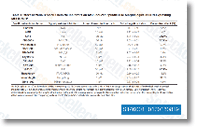EMT 6H cells induced the formation of various metastases within the lungs of all the injected mice, though the amount of mice with lung metastases as well as the quantity of metastases per lung were lower inside the EMT 6J group. Similarly, pancreatic cells trans duced with wild sort NOSII suppressed tumor growth and distant metastasis towards the liver in an orthotopic xenograft model. We previously demonstrated that breast cancer cells possess intrinsic resistance mechanisms that will avoid the induction of NOSII. any chemopreventive or therapeutic technique developed to generate higher NO levels in such cells must as a result not rely on NOSII induction. Offered the suppres sive effects of higher levels of NO on tumorigenesis and metas tasis, drugs that supply NO exogenously could have prospective in breast cancer therapy and chemoprevention.
The challenge is always to deliver NO within a sustained and controlled manner. NO donors that spontaneously selleck chemical produce huge amounts of NO independent of NOSII induction are activated at physiological pH and may induce NO mediated systemic hypotension. NO prodrugs are one more sort of NOSII independent NO releas ing agent. NO prodrugs usually do not release NO spontaneously, but rather is usually activated to produce higher concentrations of NO upon metabolism by intracellular enzyme targets. Arylated dia zeniumdiolates have been developed to become activated for NO release by reaction with glutathione S transferases. GSTs are a superfamily of enzymes that detoxify xenobiotics by conjugating them to glutathione and rising their cellular excretion.
Among the big isoforms, GST is expressed MSDC-0160 mTOT-modulating insulin sensitizer at the highest concentration in breast tumors. The expression of GST is linked with much more aggressive tumors, poor prognosis, improved threat of relapse, and decreased illness cost-free survival in breast cancer individuals. O2 1 diazen 1 ium 1,two diolate, a diazeniumdiolate acti vated to release higher levels of NO by GST enzymes, has been shown to inhibit cancer cell growth in vitro and in vivo. No matter if JS K can suppress cancer invasion, how ever, is not known. In the present post we report the novel findings that JS K inhibits the invasive activity of breast cancer cells across the Matrigel basement membrane at doses by which JS K was not cytotoxic, and that escalating TIMP two pro duction is one mechanism by which JS K mediates its anti invasive effects. The results presented here possess a bearing on the prospective for NO prodrugs to be made use of inside the prevention and therapy of metastatic breast cancer. Supplies and strategies Reagents Matrigel and kind I collagen have been bought  from BD Bio sciences and Sigma Aldrich Chemical Co, respectively. Hema three was pur chased from Fisher Scientific. Rabbit polyclonal GST and GST antibodies have been bought from EMD Biosciences.
from BD Bio sciences and Sigma Aldrich Chemical Co, respectively. Hema three was pur chased from Fisher Scientific. Rabbit polyclonal GST and GST antibodies have been bought from EMD Biosciences.
TCR Signal
Transcription is regulated by proteins called sigma factors.
